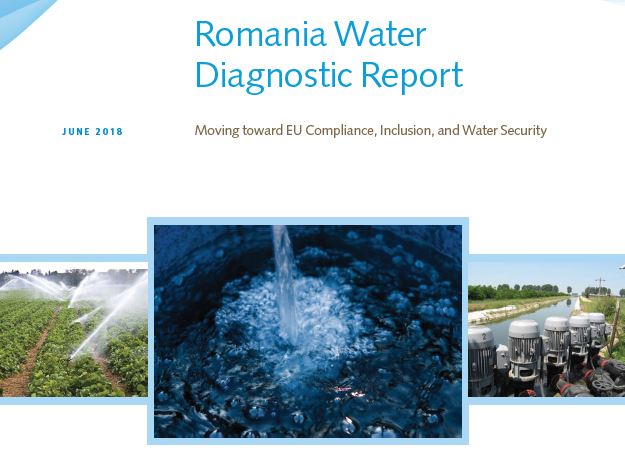Romania Water Diagnostic Report Moving toward EU Compliance, Inclusion, and Water Security
This report was prepared by the World Bank to support its water sector dialogue with the Government of Romania. It aims to provide stakeholders, especially from the Romanian Government and the European Commission (EC), with a comprehensive stock-taking of the situation in the Romanian water sector in 2017, 10 years after the country joined the EU. The report documents the current situation, discusses the main lessons learned from reforms in water resources management, water supply sanitation and irrigation, and identifies the key water challenges faced by Romania. While not pretending to cover all possible water-related issues (due inter alia to limited access to some information), it seeks to identify the key policy issues and indicate what steps the government could consider in the near future. This report looks at the situation in the water sector in Romania through the lens of water security, with a focus on compliance with EU water legislation and the inclusion of the poor. Water security is a broad concept that encompasses ensuring sustainable use of water resources, delivering affordable services to all, and mitigating water-related risks in a context of change—the goal being to build a water secure future for the people, the economy and the environment in a context of global changes. In the case of Romania, the over-arching concept of water security is closely linked to compliance and inclusion. Compliance with EU water legislation that covers large pans of sustainable water management has been a priority over the past decade, as part of the harmonization with the EU “Environmental Acquis” and broader EU integration agenda. Inclusion of the poor in Romania is also a topic of singular importance to the water sector, as the country is an outlier among the EU countries for having a large population without access to piped potable water and flush toilets.
